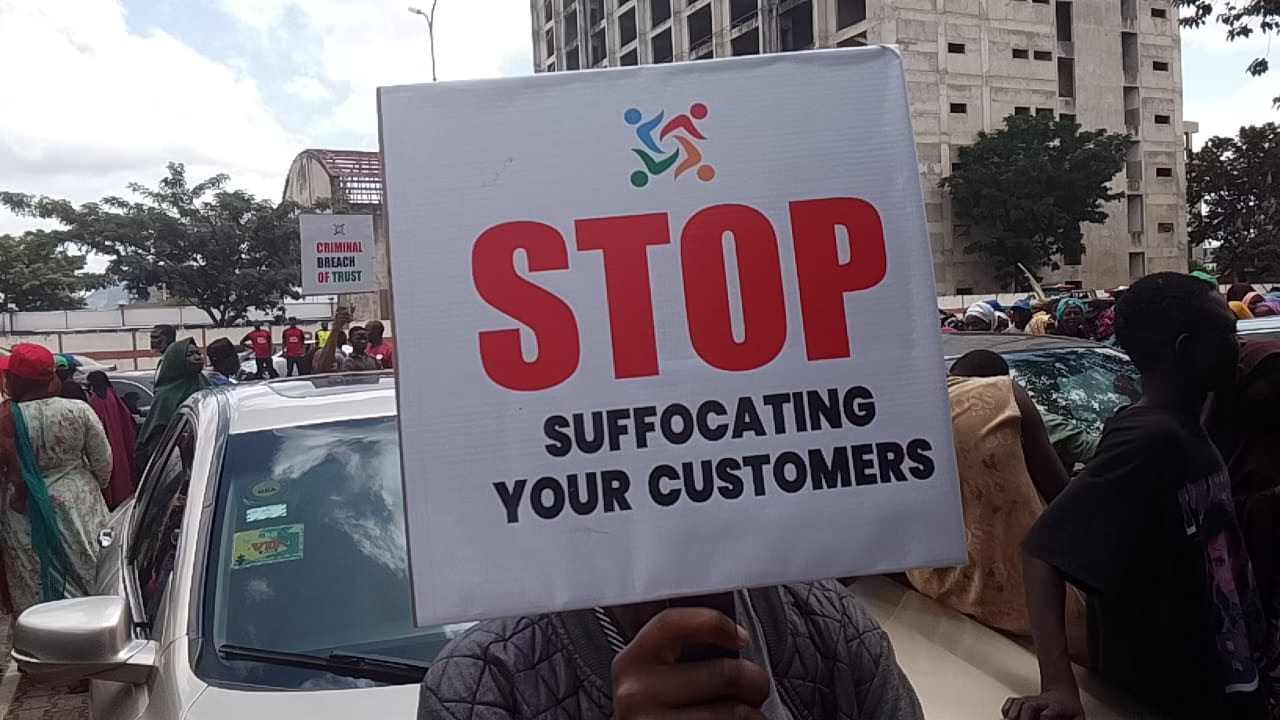Central Bank of Nigeria protest draws attention to alleged banking fraud and customer victimisation, calling for urgent reforms and transparency
The Central Bank of Nigeria protest erupted on Wednesday as hundreds of demonstrators gathered at the CBN headquarters in Abuja, voicing strong opposition against “banks’ fraudulent practices and customers’ victimisation.”
Also read: Presidency rejects World Bank’s Nigeria poverty report
Organised by a coalition of civil society organisations, the protesters submitted a petition to Olayemi Cardoso, governor of the Central Bank of Nigeria, demanding urgent reforms in the banking sector.
Led by Flora Elekwa, director of mobilisation and advocacy for the coalition, the group displayed bold placards with messages like “conspiracy,” “forgery,” and “make loan repayment transparent.”
Their call to action centred on unwarranted deductions and hidden charges that are costing millions of naira from unsuspecting bank customers.
Elekwa criticised the banking sector for its growing pattern of fraudulent activities, which she described as alarming and damaging to public trust.
“These charges amount to a loss of millions of naira by bank customers,” she said, adding that banks report trillions in profits annually while customers suffer silently.
The protesters also expressed frustration with regulatory agencies, which they say appear powerless in curbing these illegal practices.
The march was intended to raise awareness among the government, regulatory bodies, and the wider public to ensure swift action against these abuses.
Responding to the demonstration, Hakama Sidi-Ali, CBN’s acting director of corporate communications, assured protesters that their grievances would be carefully considered and addressed.
Also read: House of Representatives urges Central Bank to suspend ATM transaction charge increase
This powerful Central Bank of Nigeria protest highlights the urgent need for transparency, fairness, and accountability in Nigeria’s banking sector, as customers demand justice and protection from exploitation.

Discover more from Freelanews
Subscribe to get the latest posts sent to your email.














